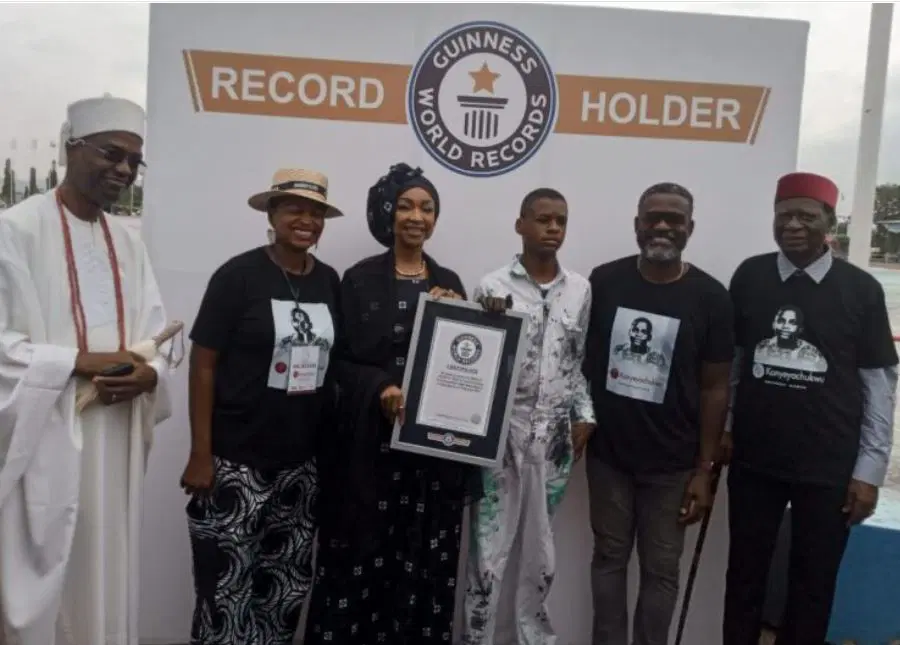
Professor Benjamin Okaba, President of the Ijaw National Congress (INC), has strongly urged President Bola Tinubu to focus on serving the Nigerian people, rather than appeasing a select few, following the controversial actions of Rivers State Governor Nyesom Wike.
Professor Okaba advised the president to take a firm stance against the growing influence of a political cabal and to focus on fulfilling his promises to the Nigerian people.
“The president is tactically being unfair to Nigerians and encouraging Wike to keep doing more. It’s not fair,” Okaba declared. “Nigerians expect so much from you, and that is why they voted massively for you. Serve the people, not a cabal.”
Speaking during an interview on ARISE News on Wednesday, Okaba emphasised that Wike’s actions, particularly in relation to the proposed rallies in Bayelsa, are unjust and have only fueled division within the Niger Delta.
Okaba voiced his concerns about the political tension in the region, which has been exacerbated by the conflicting rallies scheduled for April 12, where opposing groups will gather in the same location at the same time. He labeled the situation a “deliberate distortion” of the political landscape, accusing Wike of manipulating the events to serve his own agenda rather than the interests of the Ijaw people.
“Wike’s actions have insulted the very soul of the Ijaw people,” Okaba remarked, condemning the governor’s provocative statements and actions that have further inflamed an already tense atmosphere.
The INC President questioned Wike’s motives, pointing out that the proposed rallies were originally meant to welcome him but had since shifted to a celebration of political appointees who benefited from his patronage.
“It tells you the desperation behind these moves,” Okaba explained. “It’s clear that these people do not mean anything good for the Niger Delta or the Ijaw people.” He also warned of the potential security risks associated with the rallies, noting that, as a leader, he cannot guarantee the safety of anyone who attends, given the deep-seated anger among the Ijaw community towards Wike’s actions.
The discussion also turned to the wider issue of political instability in Rivers State, especially following the appointment of Ibok-Ete Ibas as the sole administrator. Okaba criticised the political imposition, stating that the INC does not recognise the legitimacy of Ibas’s appointment, calling it an “illegal imposition.”
He also warned that removing Governor Fubara could escalate tensions further in the region.
“Over 95 percent of Ijaw people are aggrieved. They are angry about the insults they have suffered,” Okaba revealed, emphasising the potential for violent reactions if the situation continues to spiral out of control.
Prof. Okaba’s criticism extended to the broader political landscape, where he cautioned against the rising authoritarian tendencies within Nigeria. Drawing from his expertise in sociology and conflict resolution, he noted that the current situation in Rivers and Bayelsa could serve as a warning to the rest of the country.
“We are gravitating towards dictatorship. When leaders disrespect the rule of law, ignore the will of the people, and ignore the voices of minorities, that’s a dangerous path,” he cautioned.
Okaba also rejected Wike’s claim that the Ijaw people are a minority group in Nigeria.
“We are one of the four largest ethnic groups in the Niger Delta,” he asserted. “In Rivers State, the Ijaw people control ten and a half local government areas. We are not a minority. It is a deliberate distortion of the facts.” He further explained that Ijaw people are found in six states, including Abia, Delta, and Ondo, and have long been an integral part of the region’s political and social fabric.
Okaba also lamented the historical marginalization of the Ijaw people, referencing the “vulcanization” of their communities since the 1930s and stressing the ongoing struggle for greater political representation.
Okaba reiterated his call for unity and peace in the region, stressing the importance of resolving issues through constructive dialogue rather than conflict. He noted that while political divisions are inevitable, it is crucial that the Niger Delta does not descend into chaos due to the reckless actions of individuals driven by personal ambitions.
“We must stop this deceptive move to divide us,” he said, advocating for a collective effort to overcome the challenges facing the Niger Delta and to pursue self-determination through peaceful means.
Faridah Abdulkadiri
Follow us on:
















